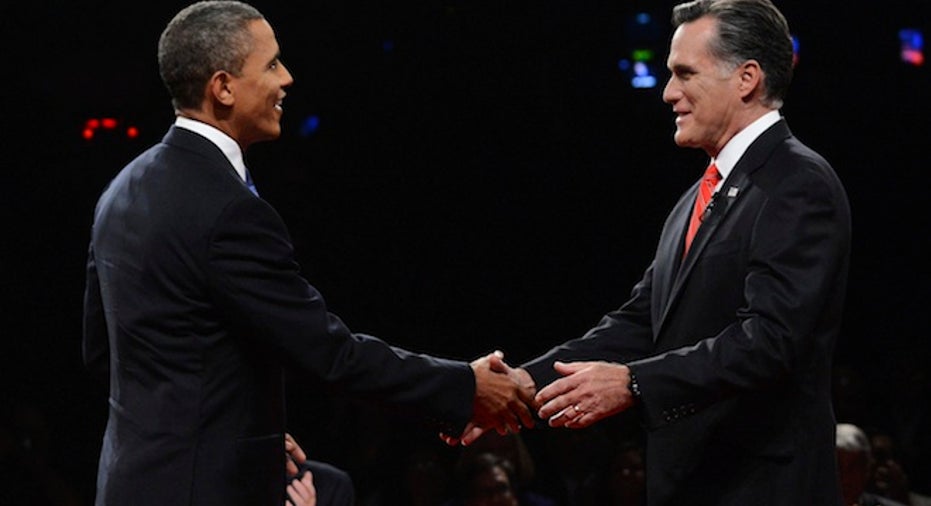Debate Recap From Small Business POV

President Obama and Governor Romney squared off at Hofstra University Tuesday during the second debate of election season. Again the two presented their plans for job creation and tax reform, pandering to the small business vote.
Obama pointed to his small business agenda throughout his term, including 18 tax ‘cuts’ he enacted while in office. Romney, meanwhile, repeatedly named “championing small business” number-five in his five point plan to jumpstart the economy and create jobs.
But was small business impressed? Derrick Parks, CEO of Metropolitan Protective Services, said the debate was more “spirited” than the first, and that both candidates appeared to be more aggressive and assertive. However, both were scant on details.
“I would have preferred them talking specifically about how they plan to create jobs—in detail,” Parks said. “I like the fact that President Obama [admits] his record is not what he wants it to be. However, the country was in a downward slide, and he has put the brakes on us sliding. Now it’s turning around and moving back uphill.”
Parks has been in business for 15 years and employs 150 workers at his security firm. As of right now, he said he is leaning toward voting for Obama come November 5.
“It took us a short period of time to get in a huge amount of debt, but just by looking at the jobs report, housing and the stock market, the economy is slowly turning around. As we stay the course, we will see the benefits of staying with the president.”
Cynthia Magnuson, senior media manager for the National Federation of Independent Business, said the group was glad to see small business have such a meaningful role in the debate.
“We were pleased to see both candidates talking about small businesses and issues that matter to them like tax rates and deregulation,” Magnuson said. “But there wasn’t a tremendous amount of meat.”
More than half of the NFIB’s small-business members do file as individuals, so rates are always of concern.
“The idea that tax rates could be raised has a chilling effect on them,” she said. “But it was nice to hear Romney said the [Republican] party has been focused on big business for too long. Small businesses would like to hear that from every candidate. Hearing a distinction between big and small businesses, and their needs is encouraging.”
John Arensmeyer, president of the Small Business Majority, said Obama’s ability to fall back on his record and provide specifics served him well in the second debate.
“I think it’s hard to judge Romney’s positions because he is not being specific about any of them,” Arensmeyer said. “He is only specific on extending tax cuts to those making $250,000 [annually] or more. This is not a targeted way to helps mall businesses in an era when we have a huge deficit. There are things you can do to make things much more targeted to small businesses.”
President Obama touted his 18 tax cuts for small businesses, which Arensmeyer acknowledged were targeted at certain groups.
“They are not all permanent and they don't help all small businesses,” he said. “But they at least target and do what they can to help small businesses.”
Arensmeyer said he wishes Obama spoke more about the proposals he included in the JOBS Act, and the money contributed to the Small Business Lending Fund.
“This is much more targeted,” he said. “Also [Obama] should have talked more about how the Affordable Care Act can help small business. The more they learn about the small business tax credit, exchanges, what choices are available—these are all benefits.”
Small business owner Lenny Verkhoglaz disagrees. As the co-founder of Executive Care, a home care business with 300 employees, he said health-care reform is extremely bothersome to him.
“What is going to hit us hard is the employer mandate,” Verkhoglaz said. “Under Obamacare, we will either have to layoff, or move workers to part-timers. And this issue hasn’t been addressed as much in the debates.”
While Verkhoglaz supports Romney, he said the former governor is too scant on the details and needs to be more clear on what will and will not stay if Romney wins the White House.
“I think the law will stay,” he said. “The machine has started, and I don’t know how difficult it will be for him to start taking that law apart.”



















